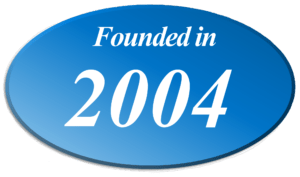- Are you brave enough to have an open and honest conversation about your organization’s fundraising?
- Are you willing to step out from behind your role as executive director and have an honest talk with your board chair?
- Are you willing to talk with him – or her – about what’s working and not working?
- Can you discuss those areas where your staff is performing well, and the areas where they are not?
- Can you do this without defensiveness or apology?
- More importantly, can you ask your board chair for her guidance regarding how to proceed?
- If you are a board chair, are you brave enough to talk with the executive director about the opportunities you see for your organization?
- Can you discuss your concerns about whether the organization can actually take advantage of those opportunities?
- Can you bring up the subject of changing the culture of board meetings so you can attract a different caliber member?
- Dare you ask your executive director to stop “assigning” board members to solicitations of people they are not comfortable asking?
If you can have the hard conversations you can ultimately make life easier for all parties.
Here’s what we’ve learned: taking the time to build trust-based relationships and to have one-on-one conversations can help an organization improve its fundraising. This is the preferred method. These personal conversations can allow for a shared search for solutions. They also allow leaders to ask hard questions of each other in privacy: “Just where are we?” “Are we headed in the right direction?” “What specifically is going as planned?” “Where can we improve?” “Are all team members in sync? Is everyone fulfilling their obligations?”
The “non-preferred” method is the caustic confrontation at the board meeting where members express strong frustration with staff, or the development director criticizes board members for not raising money. These polarizing public conversations put everyone on the defensive. We have seen these accelerate into firings and resignations. Is that really what you want?
Taking the time for private honest conversation can allow the board chair and the executive director to remember they have a shared commitment to the organization and its vision. Regardless of your role the desired outcome is recommendations, ideas or solutions that address sensitive topics such as “Are you the right person for this job?” “Are others in the right roles?”
A nonprofit coach can help strengthen the ability of both parties to have these difficult conversations. He or she can help facilitate direct and considerate discussion. This is something to consider as an alternative to the board fundraising workshop which is often code for “help me – my board isn’t doing anything.” Board workshops can be a critical educational tool and a way to jumpstart fundraising. But they are not a substitute for open and honest communication at the leadership level.
We encourage you to be brave. Be honest. Open yourself up to solutions that move beyond polarization and fear of hurting people’s feelings. Your nonprofit is worth it.
Copyright 2016 – Mel and Pearl Shaw
Mel and Pearl Shaw are authors of the new book FUNdraising Good Times Classics Vol. 1 now available on Amazon.com. For help growing your fundraising visit www.saadandshaw.com or call (901) 522-8727.











